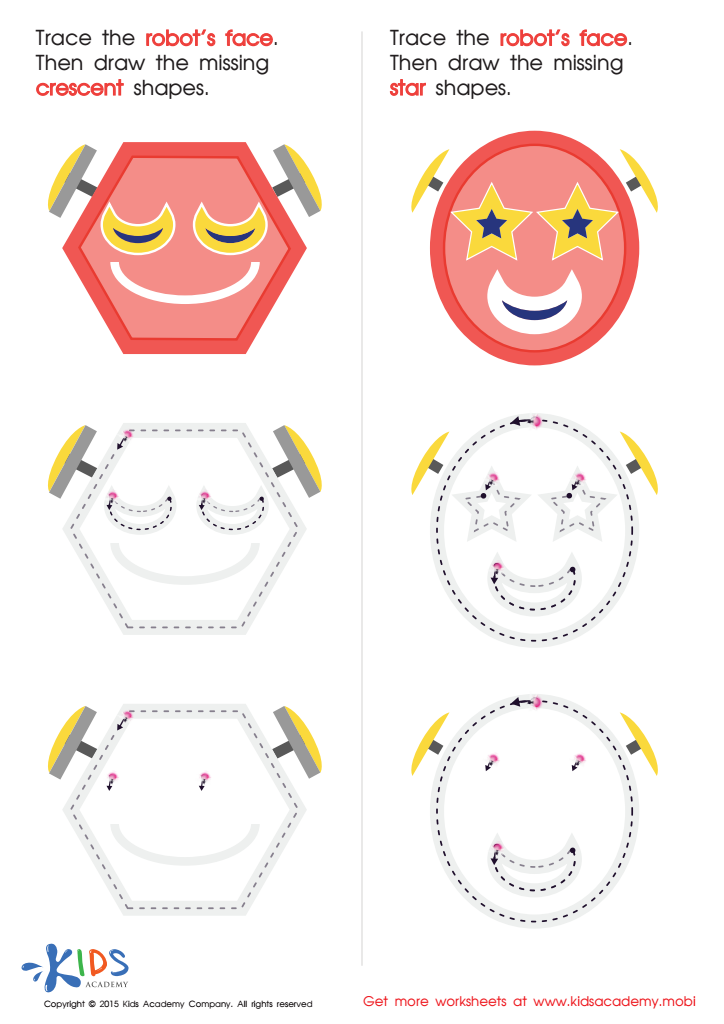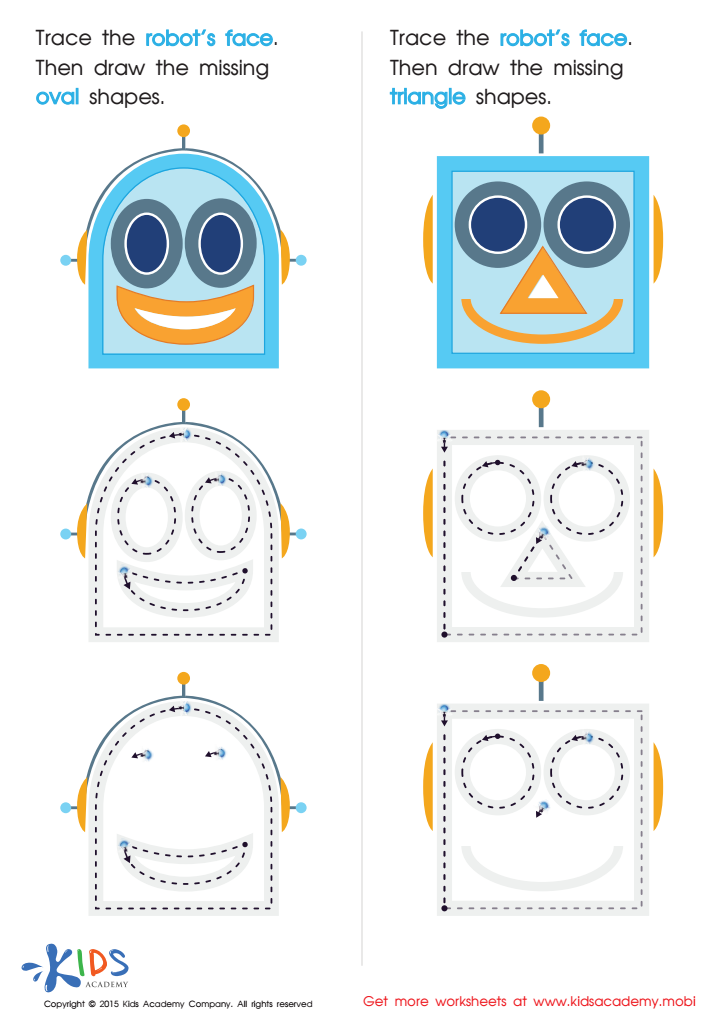Easy Tracing Shapes Worksheets Activities With Answers for Ages 6-8
3 filtered results
-
From - To
Discover our engaging collection of Easy Tracing Shapes Worksheets designed for children aged 6-8. These interactive activities not only help reinforce shape recognition but also enhance fine motor skills through tracing practice. Each worksheet is thoughtfully created to captivate young learners with vibrant visuals and fun designs. Fully equipped with answers for parents and educators, our worksheets facilitate a supportive learning environment. Ideal for home or classroom use, these resources ensure that children gain confidence as they practice tracing essential shapes. Explore our easy-to-follow tasks and make shape learning enjoyable today! Visit us for a free download and start tracing!


Composing a Robot's Face of Crescents And Stars Worksheet


Drawing with a Little Monster Worksheet


Drawing Ovals And Triangles with Fun Printable
Parents and teachers should prioritize Easy Tracing Shapes Activities for children aged 6-8 as these activities play a critical role in early childhood development. Firstly, tracing shapes helps young learners refine their fine motor skills. As children practice controlling a pencil or crayon, they enhance their hand-eye coordination and develop the muscle memory necessary for later writing tasks.
Furthermore, these activities foster cognitive skills by encouraging the recognition of different shapes and their properties. Understanding shapes is foundational for more complex math concepts, laying the groundwork for geometry and spatial reasoning. When children trace, they not only learn to identify shapes like circles, squares, and triangles but also begin to understand symmetry and patterns.
Additionally, Easy Tracing Shapes activities promote creativity and visual arts. Children can combine shapes to create their own designs, promoting imaginative thinking. The activities can also be used to spark discussions about the world around us, as parents and teachers encourage children to identify shapes in their environment.
Lastly, these activities can be a source of bonding, providing an opportunity for parents and teachers to engage with children in a fun and educational manner. By valuing such activities, adults contribute significantly to a child's holistic growth and enthusiasm for learning.
 Assign to My Students
Assign to My Students





















